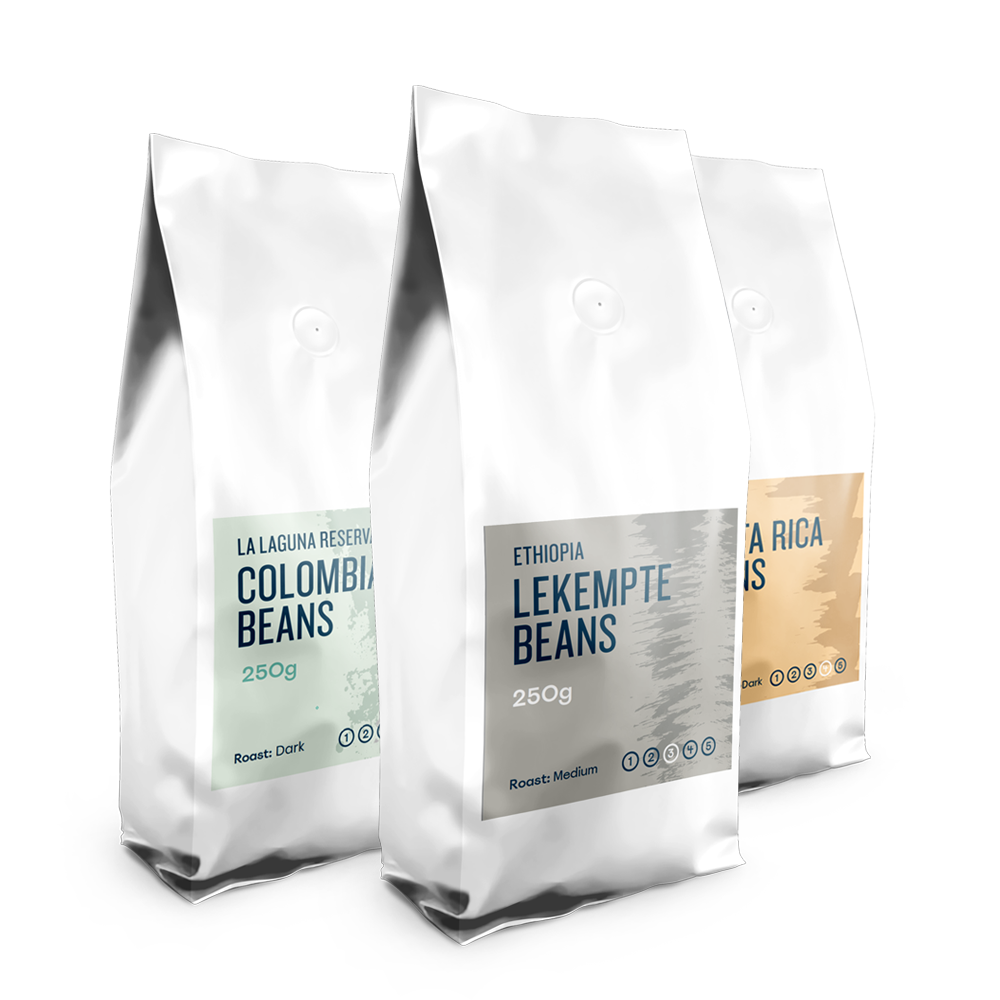Our blog
What is the difference between speciality coffee and commercial coffee?
Speciality coffee commands a higher price than blends produced for the mass market, but what is the difference between speciality coffee and commercial coffee? From bean type and growing conditions to flavour and labeling, we compare the two types of coffee product.
Different growing conditions
Let’s start at the beginning: what is the difference between speciality coffee and commercial coffee plants in terms of the environment and social context in which they’re grown?
As you might expect, the beans that are cultivated for speciality coffee blends (mainly arabica) require more specialised conditions than those grown for commercial grade coffee. For example, they only thrive in high altitudes (4,000 feet and above). The cooler temperatures and improved drainage at these heights lead to a sweeter, more concentrated flavour.
Coffee farming in these conditions requires more specialised knowledge which is often passed down through the generations. Some arabica beans (e.g. Geisha) are grown exclusively in one place. These are referred to as ‘single farm’ or ‘single estate’ coffees.
The robusta beans that form the bulk of commercial grade coffees can be grown in less ideal environments. This makes them more suited for mass market conditions but at the expense of quality.
Specialty coffees are 100% arabica – with limited exceptions
What is the difference between speciality coffee and commercial coffee beans? Most people will have heard of the arabica and robusta varieties, and many will associate arabica with high quality and robusta with lower quality coffee.
This is a useful guide, but there are exceptions. Low quality arabica beans are sometimes used in commercial grade coffee and some coffee producers specialise in high quality robusta blends. There is even a Q Robusta program which was set up to grade robusta beans for this purpose.
However, the arabica bean generally provides a mild and sweet flavour and a lower caffeine content. It also conforms to the classic golden, oval bean seen in the coffee ads. In contrast, robusta beans are round, dark in colour and comparatively bitter. They also contain much more caffeine, which is another reason why they are perfect for the mass market.
Speciality coffees provide more choice
What is the difference between speciality coffee and commercial coffee in terms of flavour?
For the reasons discussed above, speciality coffees offer a wider range of flavours, particularly those that can be described as sweet, citrusy, fruity and floral. These are often light roasted to preserve a more complex balance of flavours.
In contrast, commercial-grade coffee is more bitter with flavours based around cocoa, chocolate and nuts. It is often dark roasted to mask imperfections, leading to a more homogenous flavour.
As a speciality coffee drinker, you will get to know the flavours you prefer and where they come from. You can then purchase single-origin blends from specific regions to replicate and refine the experience.
Driven mainly by price, commercial grade coffee tends to contain beans from many different regions. As the blend varies a lot depending on market conditions, this gives the consumer little or no choice over the flavour of their brew.
Speciality coffee is almost always sold as whole beans
While there is nothing stopping a coffee producer from getting hold of the best quality arabica beans and grinding them into dust, this is rarely done. As explained in our article on the benefits of whole beans over pre-ground coffee, a bean will very quickly degrade on contact with the air.
Therefore, another difference between speciality and commercial grade coffees is that the former is sold in bags of whole beans while the latter will be found packaged in everything from bottles to tins to packets.
How do you know you are buying a speciality coffee?
The best way to make sure you are buying a speciality coffee is to look at the label. What is the difference between speciality coffee and commercial coffee labelling? To be marketed as speciality coffee, beans have to receive a grade of 80 or more from the SCA*. For example, our Kenya AA beans are rated 86, so this is a speciality coffee.
*Some coffees may be marked SCAA-graded. There is no difference: the SCAA is an out-of-date name for the same organisation.
Source your speciality coffee beans from Cartwright coffee
If you are looking for high quality, hand-picked speciality coffee beans for your coffee shop, cafe or restaurant, visit our Coffee Supply page and get in touch for advice and support.
Select from our range of speciality coffees
Have you thought about what's going to go inside your coffee machine? We only stock SCA-graded speciality coffees so you're guaranteed a superior flavour, whether you know the type of coffee you like or you're still enjoying the journey of discovery.
At Cartwright Coffee, we pull out all the stops to keep our home baristas satisfied. For example, our coffees are handpicked for a consistently even roast – and a more pleasant flavour.
